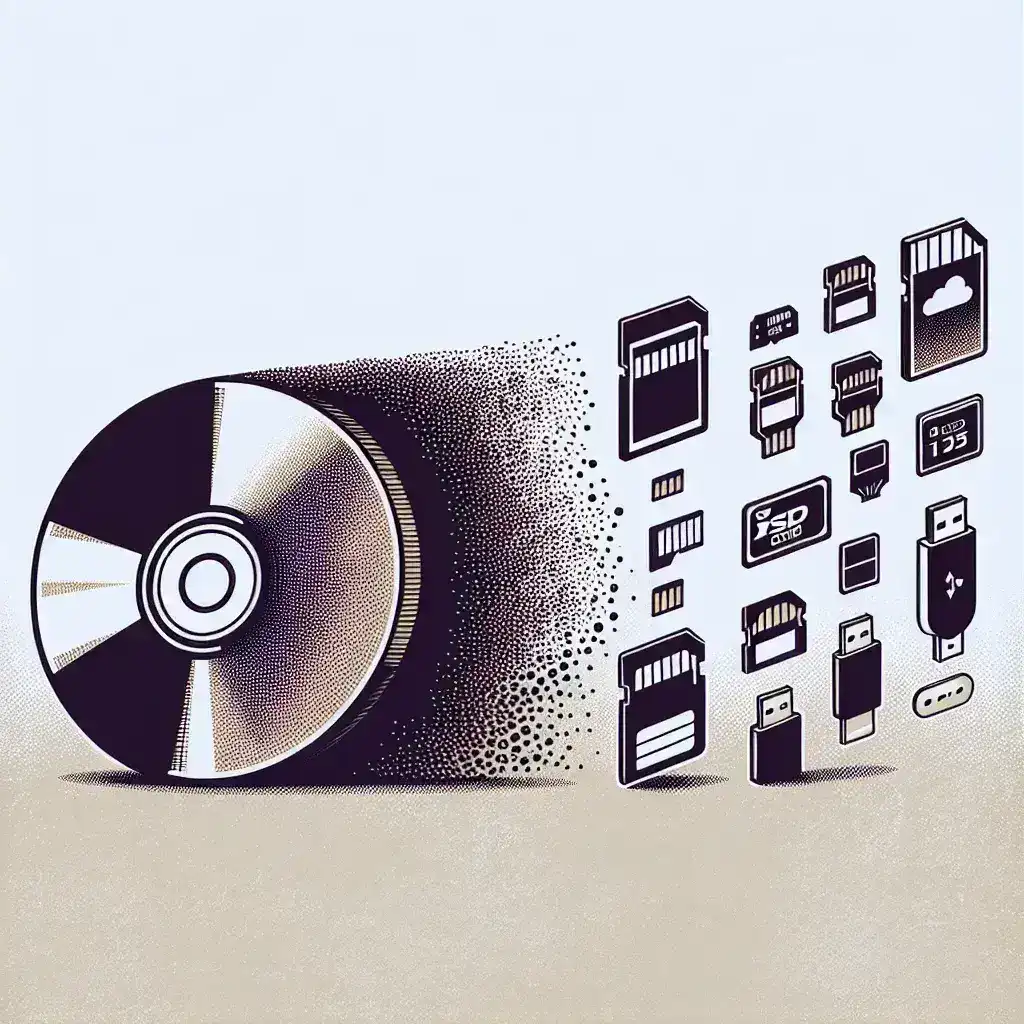The Decline of CD ROMs
In the ever-evolving world of technology, the decline of CD ROMs represents a significant shift in how we consume and store media. Once a staple in the realm of portable media, these compact discs have seen a dramatic decrease in use over the past decade. But why is this happening?
Historical Context
To understand the present, we must first look back at the history of CD ROMs. Introduced in the early 1980s, CD ROMs revolutionized data storage by allowing users to store vast amounts of information in a compact format. This technology became incredibly popular, especially in the 1990s and early 2000s, as computers became more commonplace in households and businesses.
Technological Advancements
As technology advanced, so did the methods of data storage. The rise of USB drives, external hard drives, and cloud storage solutions provided users with more convenient and efficient options. Unlike CD ROMs, these modern alternatives allowed for faster data transfer rates and greater storage capacities.
The Role of Digital Downloads
Furthermore, the digital revolution changed the way we access media. Consumers have shifted towards streaming services and digital downloads, eliminating the need for physical media altogether. Platforms like Spotify, Netflix, and various gaming services have rendered the CD ROM almost obsolete, as users prefer the immediacy of accessing content online.
Pros and Cons of CD ROMs
- Pros:
- Durability: CD ROMs are less susceptible to damage compared to magnetic storage.
- Compatibility: Many older devices still support CD ROM usage.
- Physical ownership: Some users prefer having a physical copy of their media.
- Cons:
- Limited Storage: Compared to modern solutions, CD ROMs offer very limited storage capacity.
- Convenience: Accessing data from a CD is less convenient than downloading or streaming.
- Declining Support: Many modern devices no longer include CD drives.
A Cultural Shift
The move away from CD ROMs is not just a technological shift but also a cultural one. As consumers, we are increasingly valuing convenience and speed over the traditional ownership of media. This cultural change has led to the rise of digital consumption methods, which favor immediacy and accessibility.
Future Predictions
The future of portable media is likely to continue evolving, leaving CD ROMs behind. We can expect to see further enhancements in cloud storage technologies, augmented reality, and virtual reality platforms that could redefine how we experience media.
Integration of Cloud Services
Cloud services are becoming the backbone of many media consumption experiences. With options to store, share, and access content from anywhere, the need for physical media diminishes exponentially.
Statistics to Consider
According to recent studies, over 90% of the population in developed countries engage with digital media on a regular basis. This statistic highlights the transition from physical to digital consumption and underscores the diminishing role of CD ROMs.
Real Examples of Transition
Consider the gaming industry, where physical copies of games have decreased significantly in favor of digital downloads. Major gaming companies now launch titles exclusively on digital platforms, leaving CD ROMs in the rearview mirror.
Expert Opinions
Industry experts have weighed in on this matter, noting that the decline of CD ROMs is not just a trend but a permanent shift. Technology analyst Jane Doe states, “As we move further into the digital age, physical media will continue to decline, replaced by innovations that prioritize user experience and convenience.”
Conclusion
The vanishing phenomenon of CD ROMs has undeniably shaped the current landscape of portable media use. As we embrace new technologies and cultural shifts, one thing is clear: the future lies in digital, and the CD ROM is slowly becoming a relic of the past.






Leave a Reply